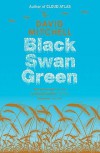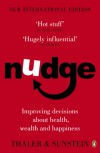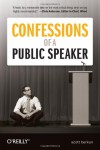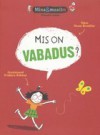Dusty Volumes
maggie and milly and molly and may went down to the beach(to play one day)
China's Urban Billion: The Story Behind the Biggest Migration in Human History
 Miller does a good job of setting out the situation with the split between China's rural and urban populations, the herou system which institutionalises this, and the likely path the large scale migration to the cities will take over the next few years, particularly as a result of the acceptance, and even embrace, of it in the current Five Year Plan.
Miller does a good job of setting out the situation with the split between China's rural and urban populations, the herou system which institutionalises this, and the likely path the large scale migration to the cities will take over the next few years, particularly as a result of the acceptance, and even embrace, of it in the current Five Year Plan. He also explains, quite convincingly, why a lot of the Western commentary on this gets it quite wrong; many of the things that would be problems in, say, Europe or the US, not only aren't problems in China, but are critically important, particularly in terms of building ahead of growth.
The parts where he sets out what the problems really are, though, are a little too glib and prescriptive on his proposed solutions — most of them boiling down to little more than "become like the West". I'd have preferred much more insight into what the the internal debates are around these issues: what are the various options that Chinese politicians and thinkers are proposing and considering, and what choices are they likely to make (rather than just what the author thinks they should make)?
Prisoner 1082: Escape From Crumlin Road, Europe's Alcatraz
 This is a remarkably engaging telling of the mostly-forgotten story of the only person ever to escape from Crumlin Road prison in Belfast, at a time when it was touted as the most secure prison in Europe.
This is a remarkably engaging telling of the mostly-forgotten story of the only person ever to escape from Crumlin Road prison in Belfast, at a time when it was touted as the most secure prison in Europe. The story divides neatly into four sections:
The first is the background to Donnelly ending up in prison in the first place. This was fascinating to me, as it's from an era of Northern Irish history that I knew absolutely nothing about — the IRA's "Operation Harvest" campaign in the late 1950s/early 1960s — and it provides an interesting take on some aspects where the author (and in the context, disclaimers shouldn't really be needed about obvious biases!) believes significant mis-steps by the British led inexorably to the events of following decades.
The second is about the prison itself — what it was like (both generally, as a piece of social history; and personally for the author, who wasn't accepted by the IRA inside the prison, so had to find his own path), and, then, how he escaped. Even though the outcome is known up-front, the telling is surprisingly suspenseful. Another follow-up, re-telling the story from the inside perspective (as a mix of later conversations with guards, with the detailed and forthright report of the inquiry into the escape) is a nice touch. And intriguingly, it was an attempt to improve the security that created the key opportunity that was needed.
The best section, however, isn't the escape itself, but the subsequent attempts to get out of, first, Belfast, and then Northern Ireland itself. At this time there was no extradition from the South to the North, so all that was needed was to find a way across the border — or, more accurately far enough across the border for Special Branch to not simply come across and grab him anyway whilst the Gardaí turned a blind eye! This was an era of frequent roadblocks and searches anyway, and those were significantly expanded following Donnelly's escape. The number of times he really should have been caught is straight out of the Keystone Cops!
The book loses its way in the final section — the "And here's what I did with the rest of my life" part. It's mildly interesting to know, but I'd have much preferred a couple of pages as an Epilogue, rather than a couple of chapters. But those are easily skipped without losing much from what's otherwise a very well told tale.
What's Mine Is Yours: The Rise of Collaborative Consumption
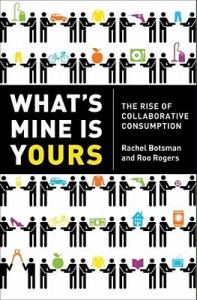 Painfully shallow, with very little insight into the multiplicity of forces at play — preferring instead to peer at everything through a slightly odd "post-consumerist" lens. The book is a few years old now, and whilst it can't really be faulted too much for predictive failures, some of the examples are a little too credulous (e.g. that the worst things to happen on AirBnB are for a guest to not turn up, or leave things a little bit untidy — shortly before the serious horror stories started emerging). In general it's another case of scatter-gun examples being used to draw out a very particular point, ignoring or avoiding the bigger more-interesting questions in the process.
Painfully shallow, with very little insight into the multiplicity of forces at play — preferring instead to peer at everything through a slightly odd "post-consumerist" lens. The book is a few years old now, and whilst it can't really be faulted too much for predictive failures, some of the examples are a little too credulous (e.g. that the worst things to happen on AirBnB are for a guest to not turn up, or leave things a little bit untidy — shortly before the serious horror stories started emerging). In general it's another case of scatter-gun examples being used to draw out a very particular point, ignoring or avoiding the bigger more-interesting questions in the process.Muinasjutud Õpime Inglise Keelt
 I've had a lot of difficulty finding books in Estonian at an introductory reading level. Even the simplest children's books tend to be much more complex than I would expect, in terms of grammatical structure, sentence lengths, strange vocabulary/idioms etc. This book is for teaching English to Estonian speakers, but as it's a parallel text, it works in both directions, and as the target reading level in English is lower than most equivalent Estonian books, the Estonian level therefore is too!
I've had a lot of difficulty finding books in Estonian at an introductory reading level. Even the simplest children's books tend to be much more complex than I would expect, in terms of grammatical structure, sentence lengths, strange vocabulary/idioms etc. This book is for teaching English to Estonian speakers, but as it's a parallel text, it works in both directions, and as the target reading level in English is lower than most equivalent Estonian books, the Estonian level therefore is too!The book gives simple versions of eight fairy tales (Little Red Riding Hood, Snow White, Hansel and Gretel, Sleeping Beauty, Puss in Boots, Cinderella, The Ugly Duckling, and Pinocchio), all told (almost) entirely in the present tense. Each is followed in turn, with a retelling of the same story in the simple past tense (I've never come across this approach before, but I really like it!). Unfortunately this retelling is only in English, which, although understandable in the context of its expected audience, is slightly disappointing. However, it actually makes a great exercise to try to do it yourself.
The best way to convey the reading level is by example, so I'll give my favourite paragraph, just for the old woman's retort:
On sügis. Päevad on lühemad ja on aina külmem ja külmem. Puudel ei ole enam lehti. Inetu Pardipoeg otsib süüa. Ta läheb väikese majakese juurde järve ääres. Maja ees on üks vana naine. Ta vaatab Inetut Pardipoega ja ütleb: “Ma ei taha sind siia. Sa ei ole kana ja ei mune mulle mune. Mine minema!”
Straight Flush LP: The True Story of Six College Friends Who Dealt Their Way to a Billion-Dollar Online Poker Empire--and How It All Came Crashing Down...
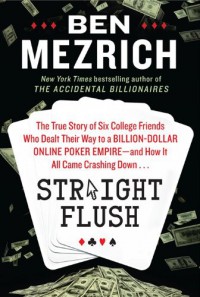 Mezrich's works of faction are generally a fun read, even if (or, perhaps, largely because) he rarely lets reality get in the way of a good story. This one, however, doesn't really work on either level. There's an obviously great story lurking underneath — or, if you're not really concerned with the facts, potentially two great stories. At some point someone is sure to write the more in-depth corporate-finance-thriller-esque exposé of the company's increasingly complex attempts to evade the US justice system, all-the-while shamelessly cheating their customers. But even though he obviously didn't want to write that book, Mezrich could still have gone for a much more classic tragedy — the David and Goliath tale of entrepreneurs up against not just better funded competitors, but the the entire weight of a broken political system, leading relentlessly to the key moment, where, hubristically believing they're beyond its reach, they take the path that ends in prison. Instead, the author decides to simply skip either of these in favour of an overly-simplistic frat-boy romp, with all the critical moments either omitted or glossed over so as to get back as quickly as possible to the fast cars and topless chicas.
Mezrich's works of faction are generally a fun read, even if (or, perhaps, largely because) he rarely lets reality get in the way of a good story. This one, however, doesn't really work on either level. There's an obviously great story lurking underneath — or, if you're not really concerned with the facts, potentially two great stories. At some point someone is sure to write the more in-depth corporate-finance-thriller-esque exposé of the company's increasingly complex attempts to evade the US justice system, all-the-while shamelessly cheating their customers. But even though he obviously didn't want to write that book, Mezrich could still have gone for a much more classic tragedy — the David and Goliath tale of entrepreneurs up against not just better funded competitors, but the the entire weight of a broken political system, leading relentlessly to the key moment, where, hubristically believing they're beyond its reach, they take the path that ends in prison. Instead, the author decides to simply skip either of these in favour of an overly-simplistic frat-boy romp, with all the critical moments either omitted or glossed over so as to get back as quickly as possible to the fast cars and topless chicas.
 Rushkoff talks several times (including in a meta-discussion about why he's even writing a book in the first place. “How anachronistic!”) about how no-one actually reads books any more — all that really matters is getting the gist, and the quicker the better.
Rushkoff talks several times (including in a meta-discussion about why he's even writing a book in the first place. “How anachronistic!”) about how no-one actually reads books any more — all that really matters is getting the gist, and the quicker the better. But, even though he could instead have written “dozens of articles, hundreds of blog posts, and thousands of Tweets, reaching more people about more things in less time and with less effort”, he thought it was worthwhile to take the long-form route instead. “I don’t think I could have expressed present shock in a Tweet or a blog post or an article, or I would have.”
Unfortunately this is for entirely back-to-front reasons. It's not that he needed to slowly and carefully build up a compelling argument, but rather that there isn't any there there, and having to express it in a more concise form would make it abundantly clear that something crucial was missing. Worse, the book is painfully full of examples of where Rushkoff himself seems to have only got the gist of something ... but a subtly wrong gist, so the whole book feels like listening to someone who's always slightly off-key.
(As an aside, it's not a PhD thesis, so I'm not expecting everything to be from primary sources, but, really, qotd.com?!)
Journalism, he notes — in the days when there was actually time to do so — used to be about trying to contextualise what was going on into a narrative. But like his inability to decide whether a student claiming to have grokked Hamlet in 5 minutes is a good or bad thing, he seems ambivalent about this too. He bemoans the lack of reflection that happens now (not just in the press, but, as result, in government too), yet is troubled that those prior narratives were usually over-simplified, sometimes plain false, and often abused by someone trying to sell us something (whether a commercial product or a war).
As a result the book itself ends up falling between those two stools. It's a constant barrage of lots of stories and facts (or almost-facts), but with surprisingly little attempt to actually construct meaning out of the parts, other than in support of the one big everything-is-a-nail thesis of the book, and thus it comes across largely as a massively elongated Chewbacca defense.
There are certainly enough nuggets of insight strewn throughout the book to give it some value. But unfortunately most of those are second-hand.
 The style was generally much too off-putting, but I was intrigued by the fascinating chapter on how the US came extremely close to a thirty-hour workweek after the Great Depression, until FDR vetoed the law (already overwhelmingly approved by Congress) in favour of a forty-hour week plus the New Deal instead.
The style was generally much too off-putting, but I was intrigued by the fascinating chapter on how the US came extremely close to a thirty-hour workweek after the Great Depression, until FDR vetoed the law (already overwhelmingly approved by Congress) in favour of a forty-hour week plus the New Deal instead.
 I can't tell if the writing style is a clever attempt to actually induce vertigo, or if this book is simply ridiculously badly written, but I fear it's the latter. It's as if Keen has accumulated a massive clippings file over the last few years, and writing this book was simply a giant jigsaw puzzle of arranging the headlines into something that seemed to have vague coherence, whether it actually made sense or not. It's a scattergun rollcall of Silicon Valley press-releases (many from companies that are already dead, or failed to ever gain any traction), with some 19th century philosophy badly mixed in to seem much more serious and intellectual, amongst constant references to how the author either is, or wants to be (depending on just how self-aggrandising he feels at the moment), a "super-node"[1], and a viscerally annoying habit of referring to people not by their names, but their twitter handles[2]. I have no idea who the audience for this book is meant to be, but it too often seems like it must be people sufficiently insecure about philosophy or technology to be awed by all the references, without ever noticing that there's simply no depth behind any of them. A better version of the book might use the arguments between Jeremy Bentham and John Stuart Mill (for example) as a starting point to reboot or recontextualise some of the modern privacy debates, but anyone who's already familiar with the philosophical history will find this book far too light-weight, and anyone who isn't won't really have a clue what Keen is talking about, as he does such a poor job of actually explaining it.
I can't tell if the writing style is a clever attempt to actually induce vertigo, or if this book is simply ridiculously badly written, but I fear it's the latter. It's as if Keen has accumulated a massive clippings file over the last few years, and writing this book was simply a giant jigsaw puzzle of arranging the headlines into something that seemed to have vague coherence, whether it actually made sense or not. It's a scattergun rollcall of Silicon Valley press-releases (many from companies that are already dead, or failed to ever gain any traction), with some 19th century philosophy badly mixed in to seem much more serious and intellectual, amongst constant references to how the author either is, or wants to be (depending on just how self-aggrandising he feels at the moment), a "super-node"[1], and a viscerally annoying habit of referring to people not by their names, but their twitter handles[2]. I have no idea who the audience for this book is meant to be, but it too often seems like it must be people sufficiently insecure about philosophy or technology to be awed by all the references, without ever noticing that there's simply no depth behind any of them. A better version of the book might use the arguments between Jeremy Bentham and John Stuart Mill (for example) as a starting point to reboot or recontextualise some of the modern privacy debates, but anyone who's already familiar with the philosophical history will find this book far too light-weight, and anyone who isn't won't really have a clue what Keen is talking about, as he does such a poor job of actually explaining it. The part that makes it so frustrating is that I agree with lots of his points. But this is much too important a topic to be dealt with quite so badly as this.
----
[1] There's a constant tension between the author not really wanting to be part of this new world, whilst craving recognition as an important figure within it. If that had actually been much more explicitly the point of the book, and treated as a serious issue, it could have been much more interesting, but as it stands it's much more like someone who constantly brags that they're the most humble man alive.
[2] Yes, yes, their online persona is a distinct and distinctive being, yada yada yada. But please, please, please, don't let this become a trend.
 It's really difficult to know what rating to give this. The style of it grated pretty heavily in places, as did the constant “Here's what I'm going to tell you next” / “Here's what I just told you” summaries. And for a book that states up-front that it's going to be written in the style of a manifesto, it's actually much more of an autobiographical quest interspersed with a series of interviewee mini-biographies.
It's really difficult to know what rating to give this. The style of it grated pretty heavily in places, as did the constant “Here's what I'm going to tell you next” / “Here's what I just told you” summaries. And for a book that states up-front that it's going to be written in the style of a manifesto, it's actually much more of an autobiographical quest interspersed with a series of interviewee mini-biographies. But for all its problems it does a great job of combining the central ideas of [b:Drive|6452796|Drive The Surprising Truth About What Motivates Us|Daniel H. Pink|http://d.gr-assets.com/books/1348931599s/6452796.jpg|6643001], [b:Talent Is Overrated|4485966|Talent Is Overrated What Really Separates World-Class Performers from Everybody Else|Geoff Colvin|http://d.gr-assets.com/books/1347697677s/4485966.jpg|4642546], [b:Little Bets|10822774|Little Bets How Breakthrough Ideas Emerge from Small Discoveries|Peter Sims|http://d.gr-assets.com/books/1347339575s/10822774.jpg|15736525], and [b:Where Good Ideas Come From|8034188|Where Good Ideas Come From The Natural History of Innovation|Steven Johnson|http://d.gr-assets.com/books/1311705993s/8034188.jpg|12645873] into a simple, coherent, well-structured, and well-supported argument that best way to find your dream job is simply to work really hard at turning your existing job into it.
It could have been a much better book, but for the number of interesting insights along the way I'll round up, rather than down, my ★★★½.
The Launch Pad: Inside y Combinator, Silicon Valley's Most Exclusive School for Startups
 The straightforward fly-on-the-wall style, and seeming reluctance to ask the higher level questions or really engage more deeply than simple narration make this come across more like the work of a first-time author, rather than someone who's been writing about technology for more than 20 years. But there's enough second-hand insight here to justify rounding up a ★★★½
The straightforward fly-on-the-wall style, and seeming reluctance to ask the higher level questions or really engage more deeply than simple narration make this come across more like the work of a first-time author, rather than someone who's been writing about technology for more than 20 years. But there's enough second-hand insight here to justify rounding up a ★★★½
What Does China Think?
 "From the late Qing era to the early years of the Republic, the era of warlords, Jiang Jieshi, Mao Zedong, Deng Xiaoping and Jiang Zemin — Chinese politics has made world-shaking changes, but the label put on it [in the West] made no change at all."
"From the late Qing era to the early years of the Republic, the era of warlords, Jiang Jieshi, Mao Zedong, Deng Xiaoping and Jiang Zemin — Chinese politics has made world-shaking changes, but the label put on it [in the West] made no change at all."And so Mark Leonard sets out, in about 150 very readable pages, to change that, by giving a brief overview of the variety of recent strands of political theory and practice, painting modern China not so much as one big behemoth, but as a wide range of competing ideologies, approaches, and, indeed, experiments. The five stars aren't because it's a perfect book, but simply to reflect just how many ‘ah!’s, ‘ooh!’s, and ‘eh?’s were crammed into it. For those of us involved in the world of public participation and open power, there are a lot of fascinating discussions tantalisingly alluded to here (I was particularly struck by one analogy of how Western democracy is like a restaurant where you can choose the chef, but then you have to eat whatever he cooks; vs China where you get no say in who the chef is, but you get to choose your [policy] dishes). Now I want the version that's twice as long, and updated for what's happened over the last five or six years.
 I really don't get why everyone seems to love this. It was certainly well paced (apart from all the really annoying "Let's pause for a lecture now" parts), but mostly it's just pretty badly written propaganda. That I happen to agree with most of it doesn't really rescue it.
I really don't get why everyone seems to love this. It was certainly well paced (apart from all the really annoying "Let's pause for a lecture now" parts), but mostly it's just pretty badly written propaganda. That I happen to agree with most of it doesn't really rescue it.
The New Tycoons: Inside the Trillion Dollar Private Equity Industry That Owns Everything
 There's an interesting book to be written on this topic, but this isn't it. There's very little depth or insight here. It's little more a series of brief business-press sketches joined loosely together, that rarely even asks any questions, let alone tries to answer them.
There's an interesting book to be written on this topic, but this isn't it. There's very little depth or insight here. It's little more a series of brief business-press sketches joined loosely together, that rarely even asks any questions, let alone tries to answer them.
Currently reading
Black Swan Green
The Professor and the Madman: A Tale of Murder, Insanity and the Making of the Oxford English Dictionary
Kiss Kiss
Nudge: Improving Decisions about Health, Wealth and Happiness
The Pleasures and Sorrows of Work
Lost and Found in Russia: Lives in the Post-Soviet Landscape
Confessions of a Public Speaker
Mis on Vabadus
Shades of Grey
The Disappearing Spoon: And Other True Tales of Madness, Love, and the History of the World from the Periodic Table of the Elements



